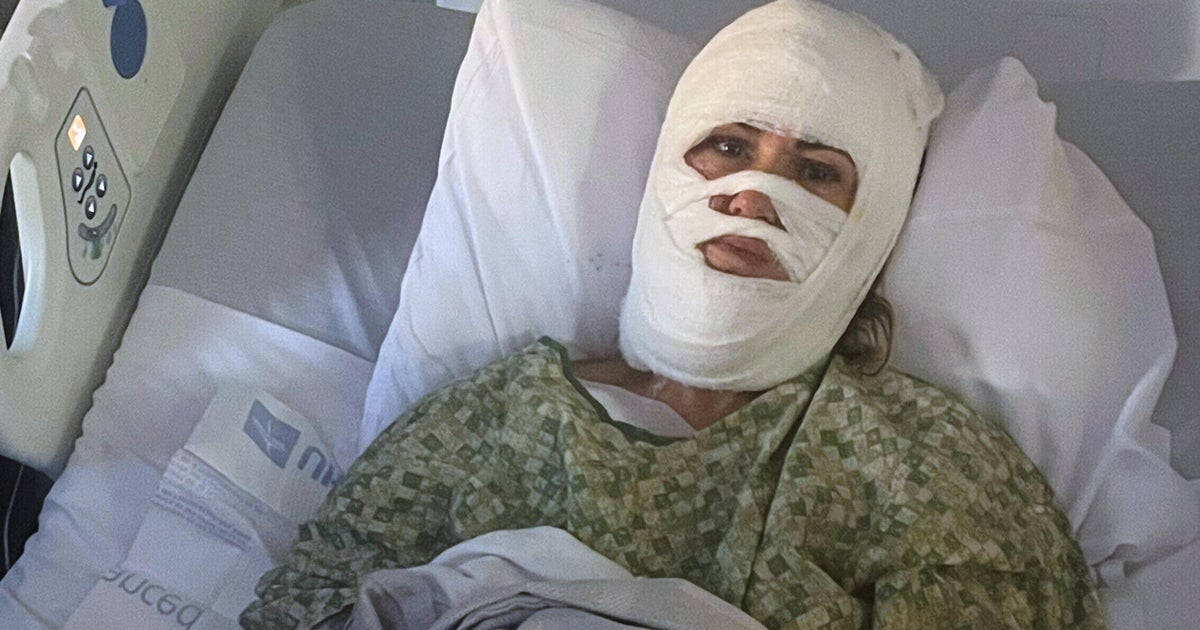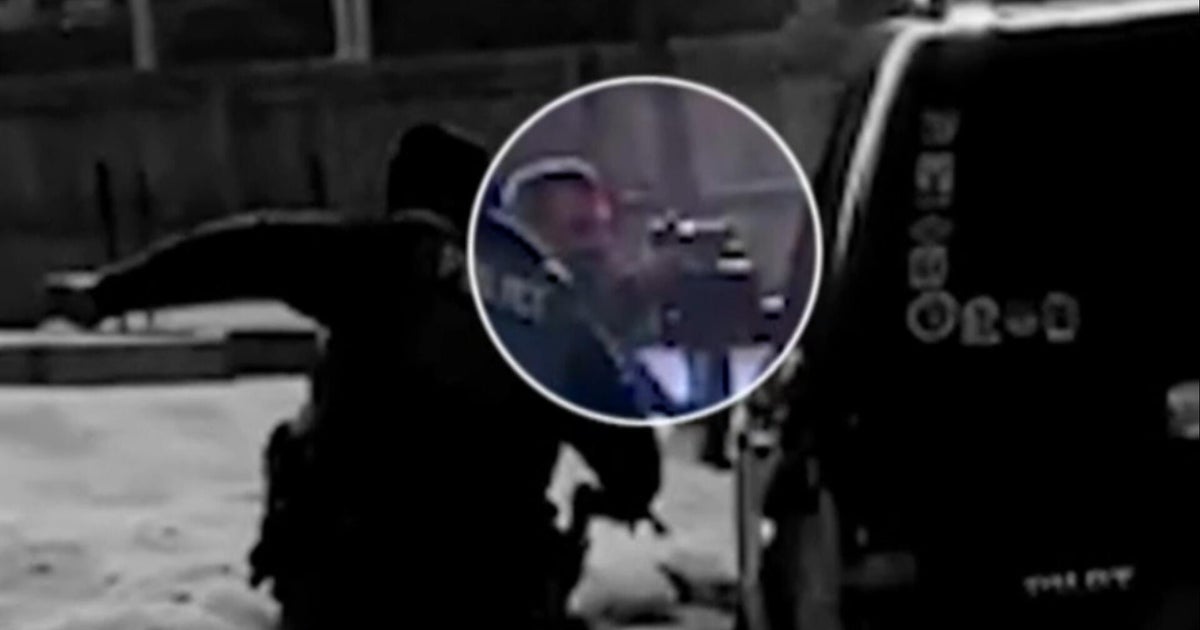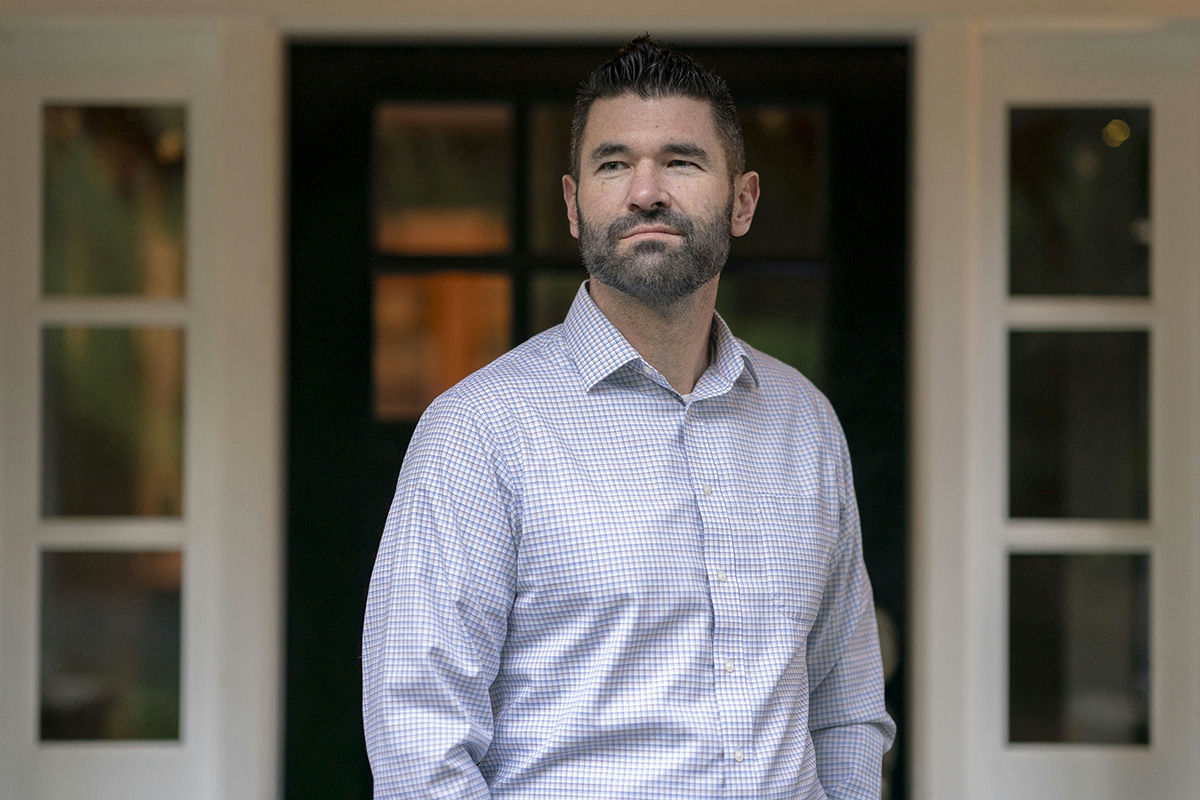From drug smuggler to white-collar criminal to weapons dealer: My life as an undercover FBI agent
Through never-before-seen footage and in-depth interviews, "The FBI Declassified" takes you inside the minds of federal agents and analysts as they reveal how they solved some of the biggest cases of their careers. Watch Wednesday, August 18 at 10/9c on CBS.
When Special Agent Mike Gibeley decided to join the FBI and take down criminals, he never thought he would be posing as one himself. "I've been a large-scale cocaine supplier. I've been a drug dealer, a weapons dealer, a domestic terrorist." said Gibeley. "I spent my whole life trying to stay out of trouble to become an FBI agent. And the next thing I know, senior agents were telling me, 'hey, you'd be a good criminal.'"
For nearly 20 years, Gibeley has played a role in countless undercover operations at the FBI, blending in with mafia bosses and drug rings, all to combat crime from the inside.
"I've had people put their hands on me. Ask me if I was wearing a wire. Ask me if I was an agent. Ask me if I was a rat," said Gibeley. "If you haven't given a moment's thought about what you might say when you feel a piece of steel against the back of your head, you're not preparing properly."
Preparation is paramount for going undercover, and the first rule is research: lead with what you know. "In undercover work, we try to stay close to who we really are, so we don't have to remember as many lies," said Gibeley. The difference can be life and death. "There's no second take. It's not a movie. It's real. When you make a mistake, you've got to roll with it."
Gibeley began his undercover career after just two years with the bureau. He completed the FBI's required certification school in 2001, moving up the ranks and assisting his senior colleagues in a number of roles. "I had the opportunity to be working around a lot of really highly experienced undercovers, which gave me the opportunity to be an apprentice and learn along the way."
That's how Gibeley ended up meeting 30-year FBI veteran Michael R. McGowan, who took Gibeley under his wing but spared no mercy when showing him the ropes. "It was never pleasant. It was tough love," remembers Gibeley.
"Mike was a horrible undercover when he started, as were I," admits McGowan, who retired in 2017. "But he was intelligent, he was compassionate about the technique. He wanted to learn," he said, adding, "I have never seen him make the same mistake twice, which is critical in undercover work."
Together, McGowan and Gibeley took on some of the most notorious and dangerous criminals, including Mexican drug lord Joaquín "El Chapo" Guzmán, and mafioso Matthew Guglielmetti, who ran the New England La Cosa Nostra mob. In the Guglielmetti case, Gibeley posed as an office manager for a phony construction business that served as a front to launder drug money. They funneled their alleged profits to Guglielmetti, gaining his trust and inside access into how the mafia operated. Because of their undercover work, the FBI was able to convict several La Cosa Nostra members, including Guglielmetti.
Living a double life wasn't easy, and often took its toll on Gibeley. "It's been tough on my family … and it's been challenging at times over the years. The phone rings, we go. There's a problem, we go," he said. "But nonetheless, my proudest moments in the FBI are having the opportunity to be a part of some of the most incredible teams."
One such moment came in October 2015 when the FBI received a tip about a Massachusetts man named Edward McLarnon, an anti-government conspiracy theorist who was allegedly plotting to assassinate high-ranking public officials. The FBI learned from an informant that McLarnon wanted to illegally purchase a cache of weapons to murder federal judge Dennis Saylor, former Massachusetts Attorney General Martha Coakley, and former homeland security adviser Lisa Monaco.
The FBI found that McLarnon had a deep-seated resentment against the court system after a judge awarded McLarnon's ex-wife custody of their son following a bitter divorce. He posted homemade videos on his YouTube channel about alleged judicial corruption and claims of state-sponsored kidnapping and government cover-ups.
Agents believed McLarnon's threat to kill government officials was legitimate and they needed to act quickly. They determined the best way to thwart an attack was to send in an undercover agent to pose as a black-market arms dealer. That assignment went to Special Agent Gibeley.
FBI agents communicated with McLarnon using a fake Gmail account and posing as the informant. They compiled a profile of McLarnon and devised an undercover scheme tailor-made for him. They arranged for Gibeley, posing as the arms dealer, to meet McLarnon at a New Hampshire gun store to sell him the weapons.
Part of Gibeley's backstory was passing himself off as someone who had served in the army. The only problem? Gibeley had never served a day in the army. "We broke 'Undercover 101' rule: Don't be who you aren't. But in this case, we didn't have a choice," Gibeley said. "At this point, I'm stuck with it. I got to be an army guy, even though I don't know anything about the army."
To prepare for the role, Gibeley read up on life in the military and interviewed people he knew who had served. He dressed the part of a gun-loving, outdoorsy type, wearing a hooded pullover, blue jeans and boots. He even borrowed his nephew's West Point hat to lend more credibility. Gibeley also pretended he was having his own child custody issues to connect with McLarnon and gain his trust.
The preparation paid off. Gibeley successfully convinced McLarnon that he was an arms dealer and they developed a friendly rapport. Over the course of two meetings, McLarnon divulged his plans for killing Saylor and Coakley, but never mentioned Monaco. Instead, he brought up a new target: the man who had married McLarnon's ex-wife. "What surprised me most was how direct, blunt and deliberate he was about it," said Gibeley.
During the meetings, the FBI SWAT team, as well as other agents, were stationed nearby, listening through surveillance equipment in case they needed to intervene should things go south. At one point, McLarnon took out his own gun and pointed it at Gibeley. Still, the agent remained calm and focused, gathering as much evidence as he could from McLarnon to build a rock-solid case. "If you have the guts to walk into the room, you darn well better make sure that the evidence and intelligence you captured is going to be something that you can use for trial," Gibeley said.
On November 6, 2015, Gibeley sold McLarnon an arsenal that included a .22 pistol with a silencer, an AK-47 rifle, two grenades, and multiple rounds of ammunition. Just after the sale was completed, the FBI SWAT team quickly moved in and arrested McLarnon. His case went to trial, with McLarnon representing himself. He was convicted and sentenced to 25 years in prison.
For Gibeley, every operation is worth the risk. "When you're talking about someone that wants to attack our way of life, kill our citizens … you've got to stand up and fight," Gibeley said. "We fight for people who don't have the ability to fight for themselves. It's one of the things I cherish most about this job is being in that role."







